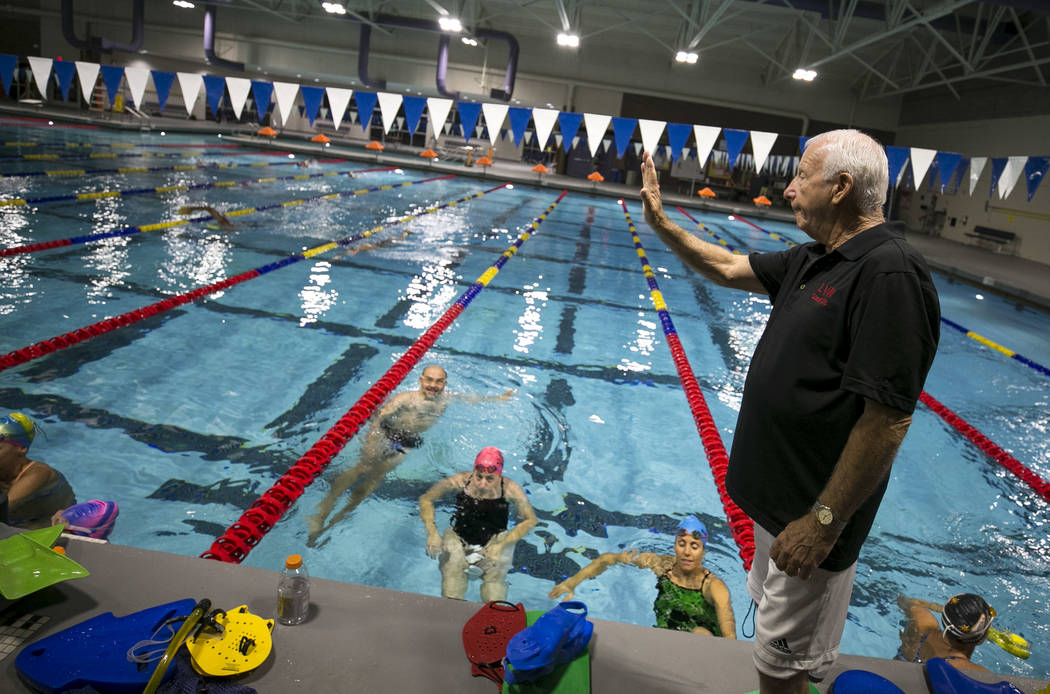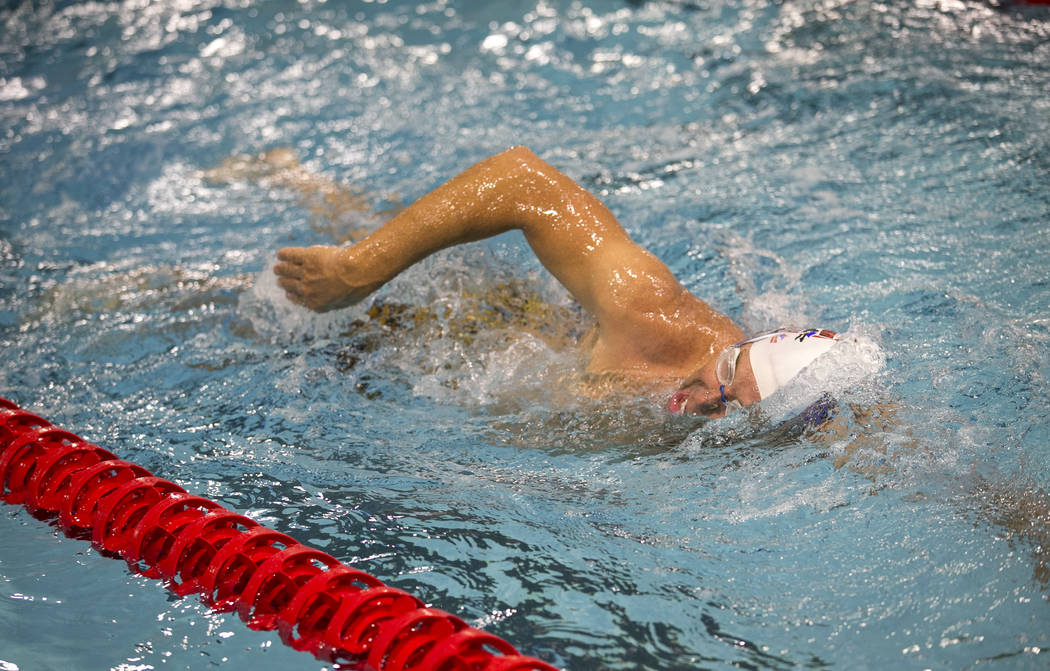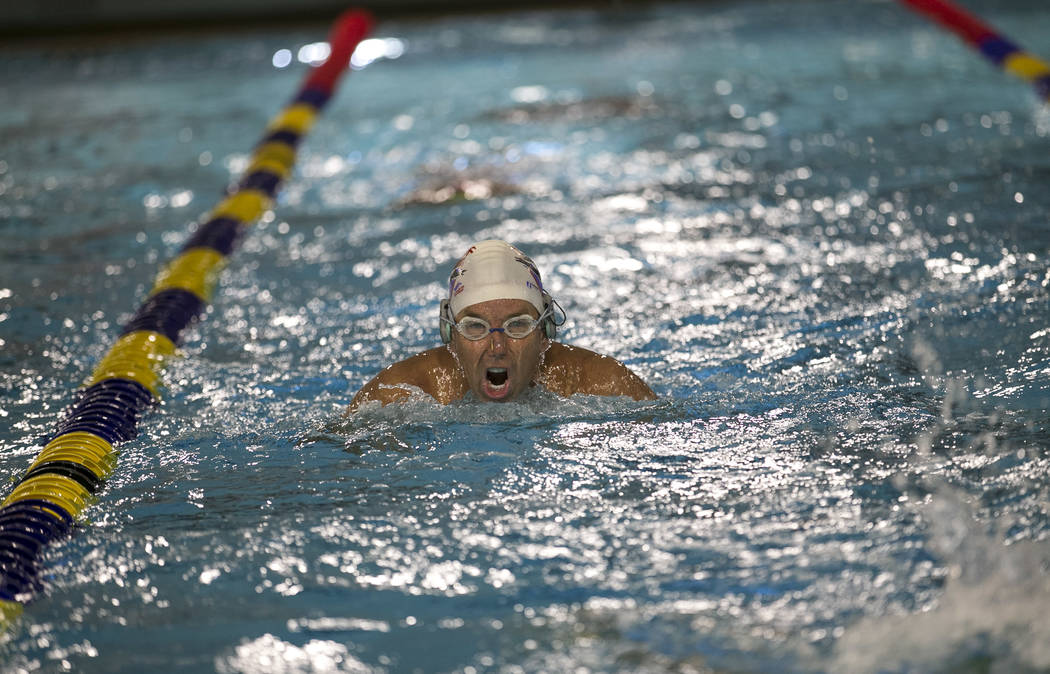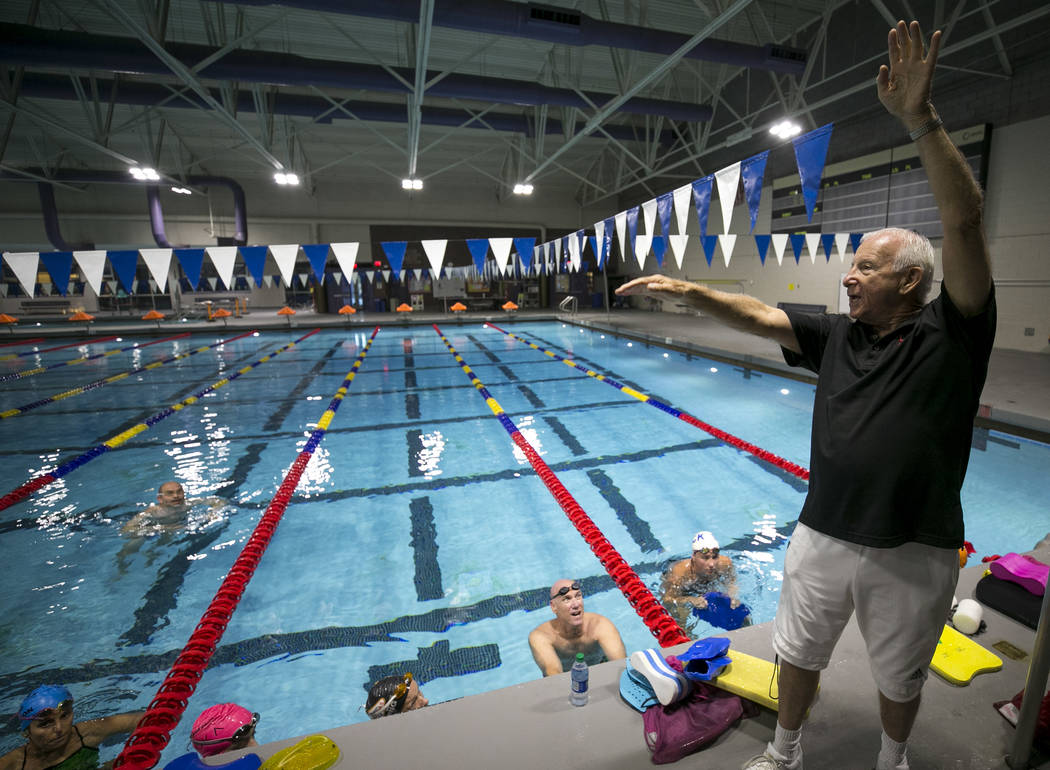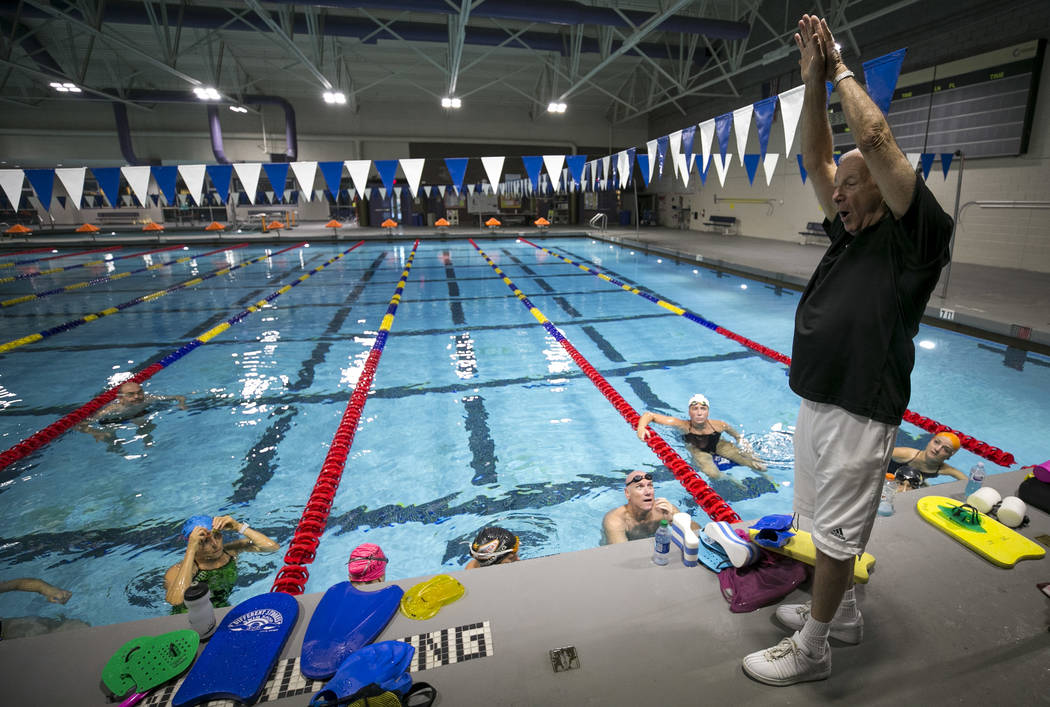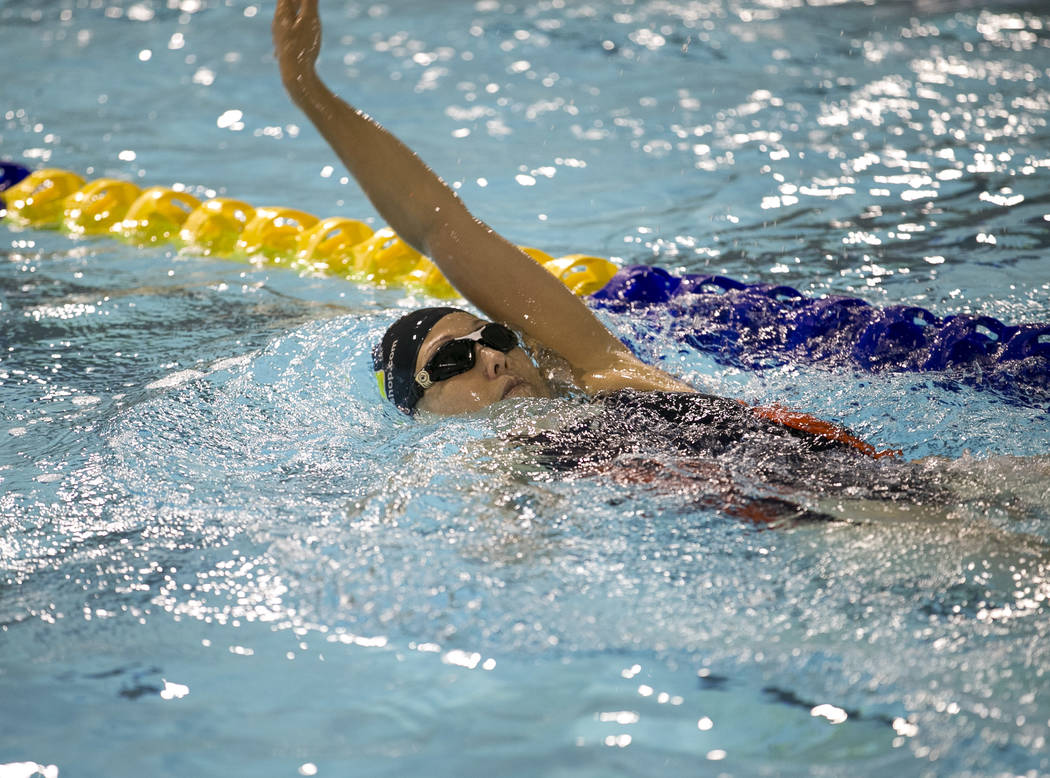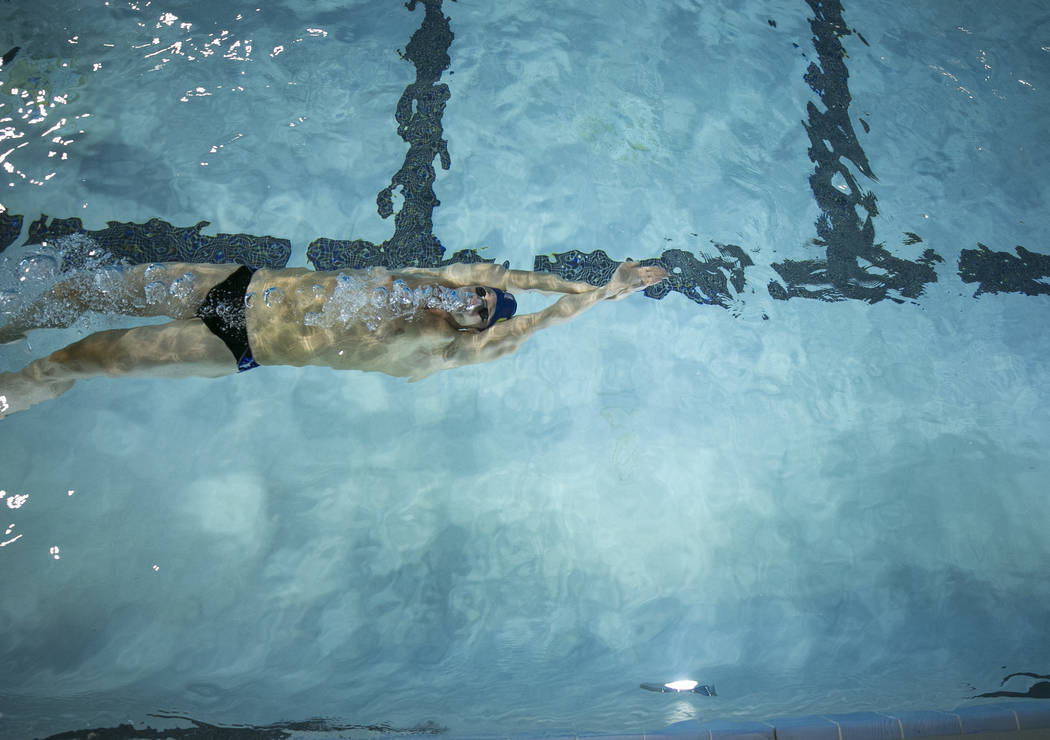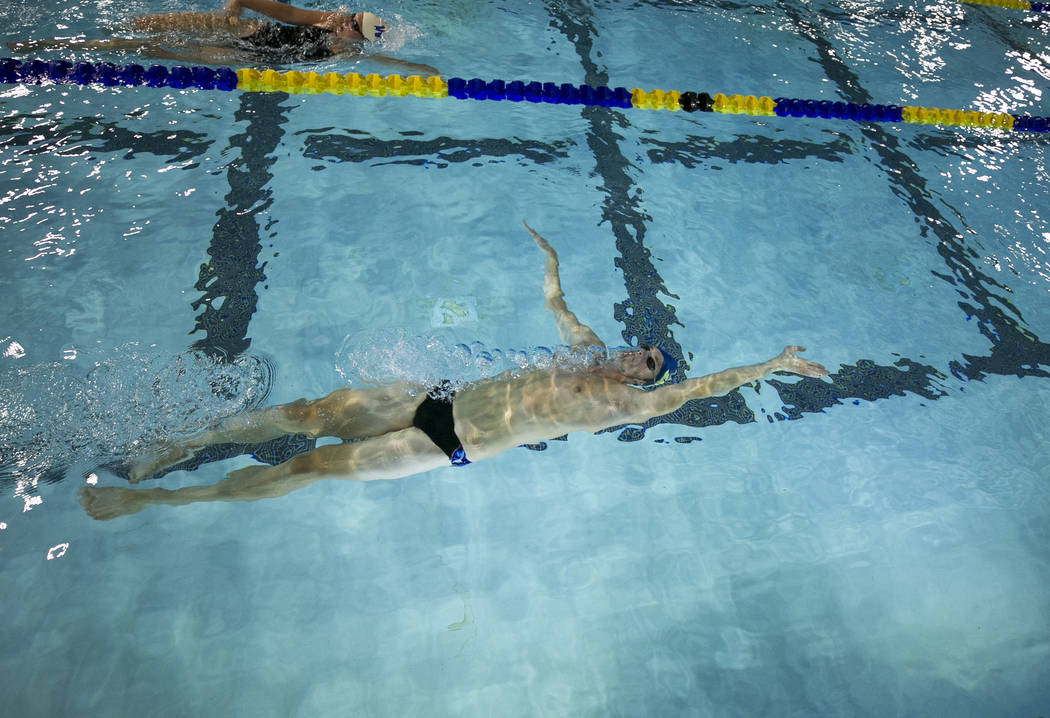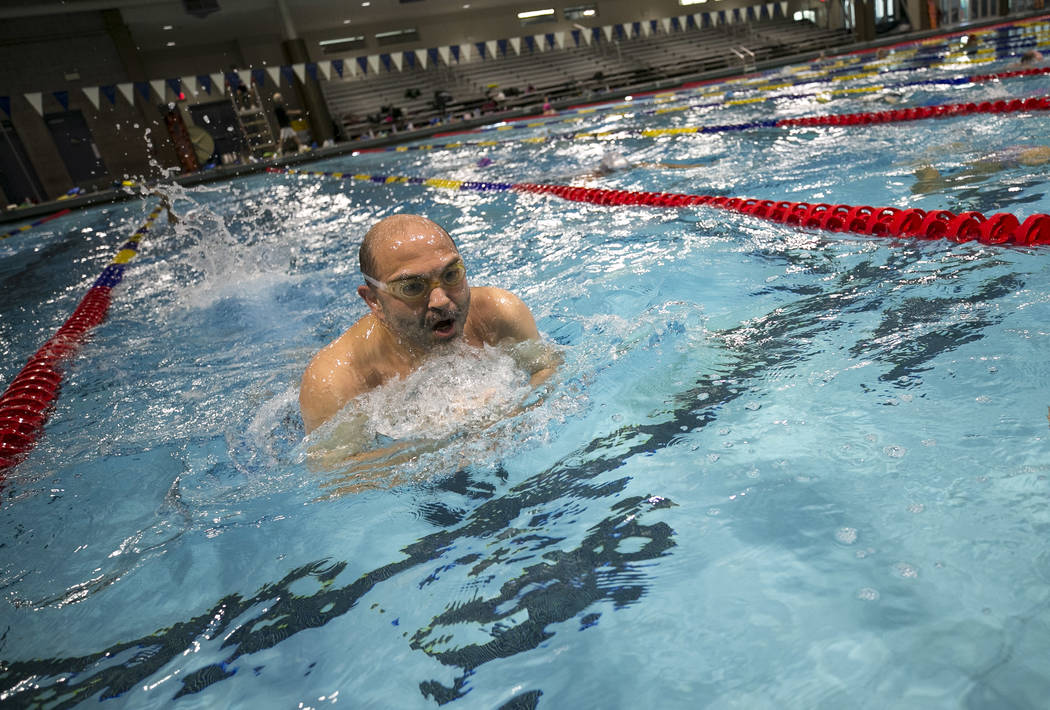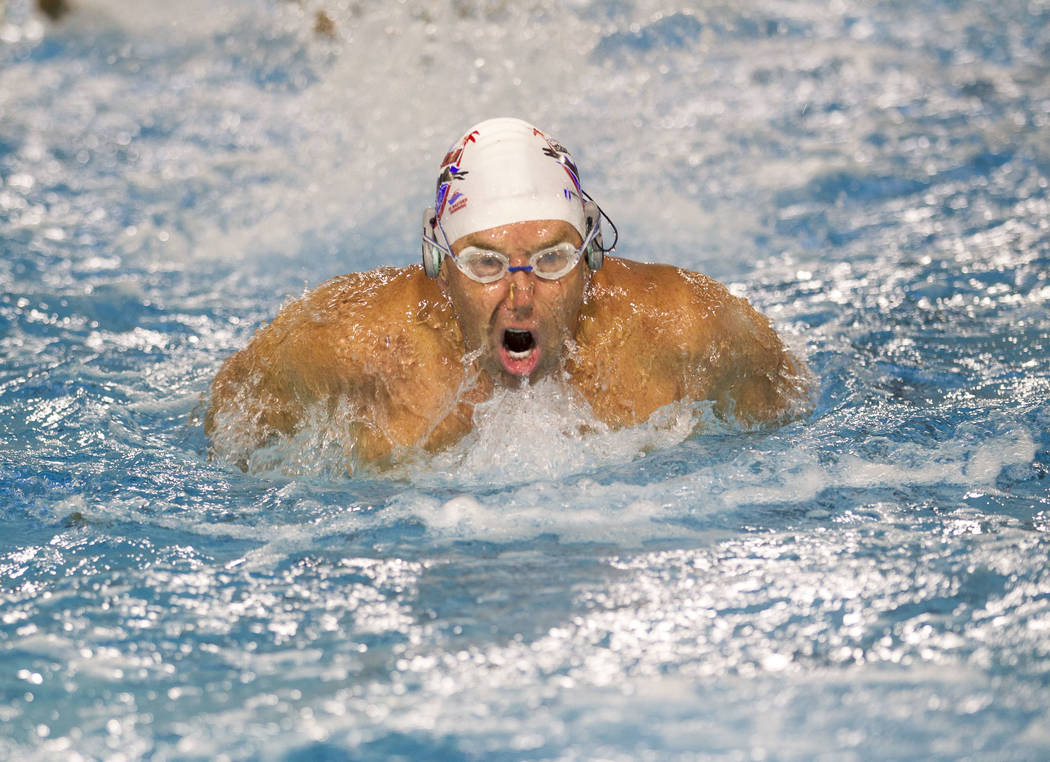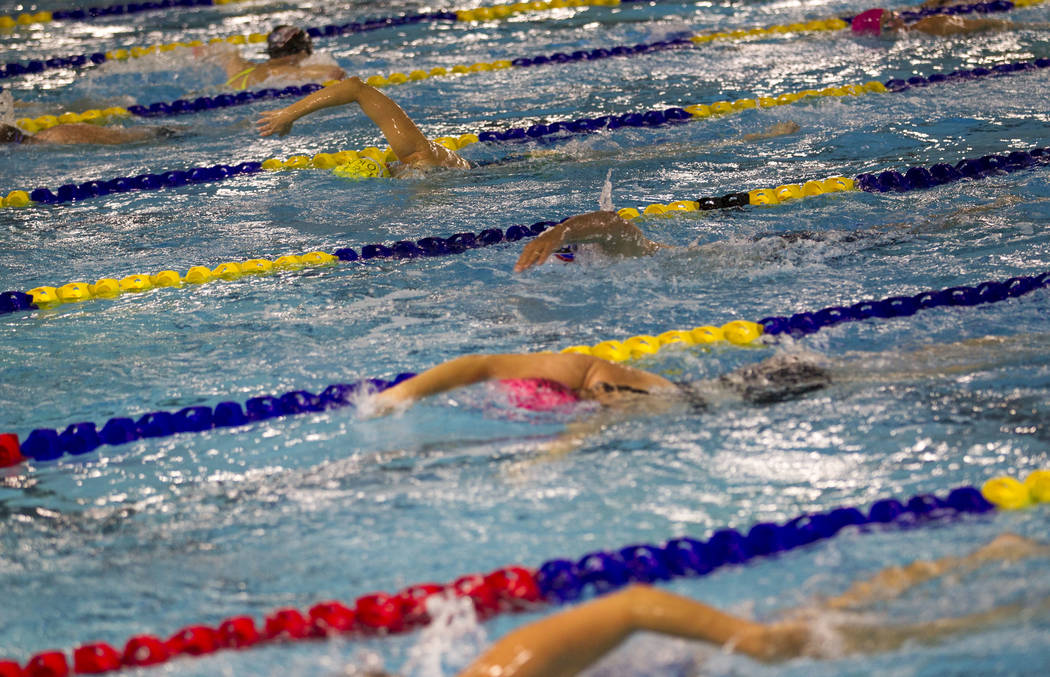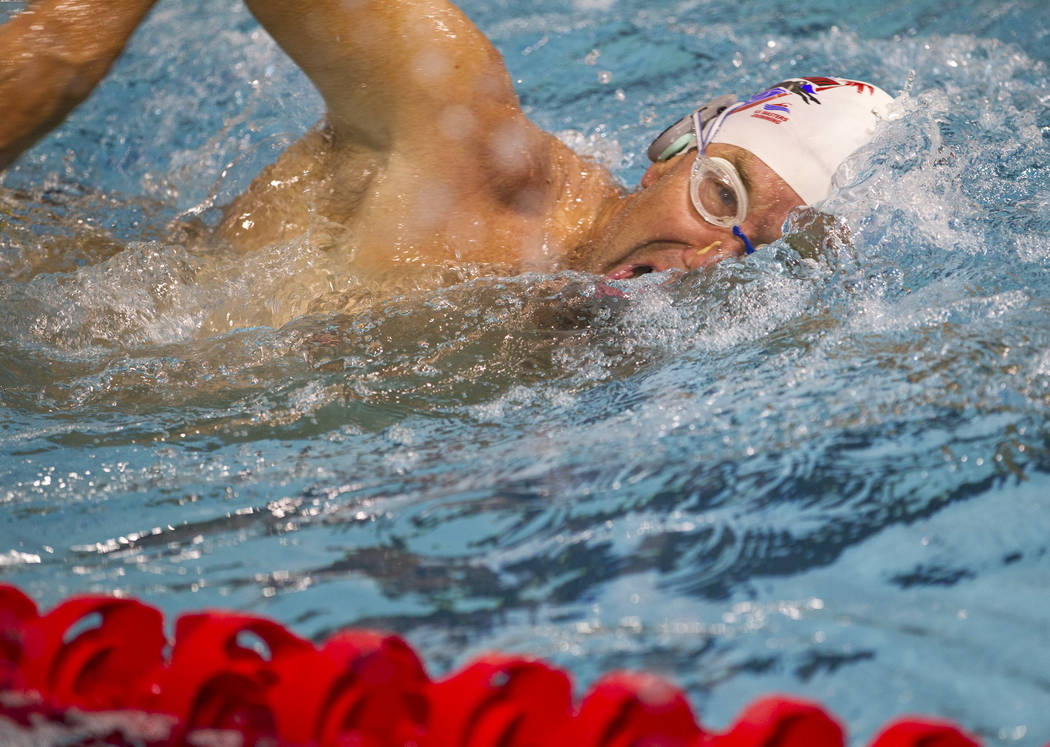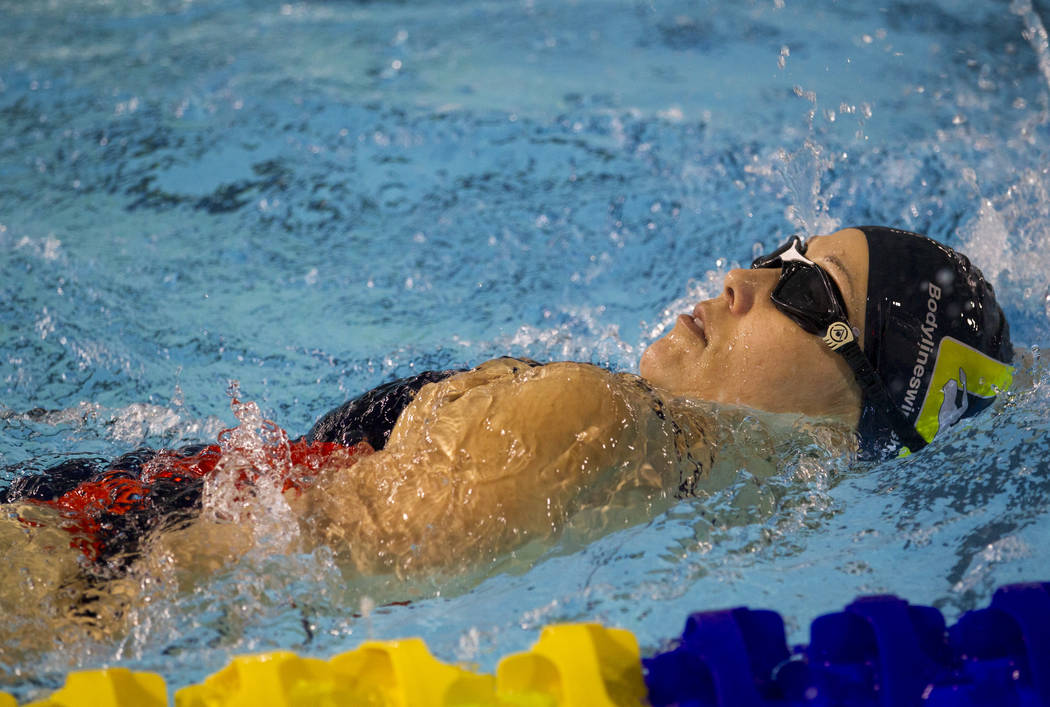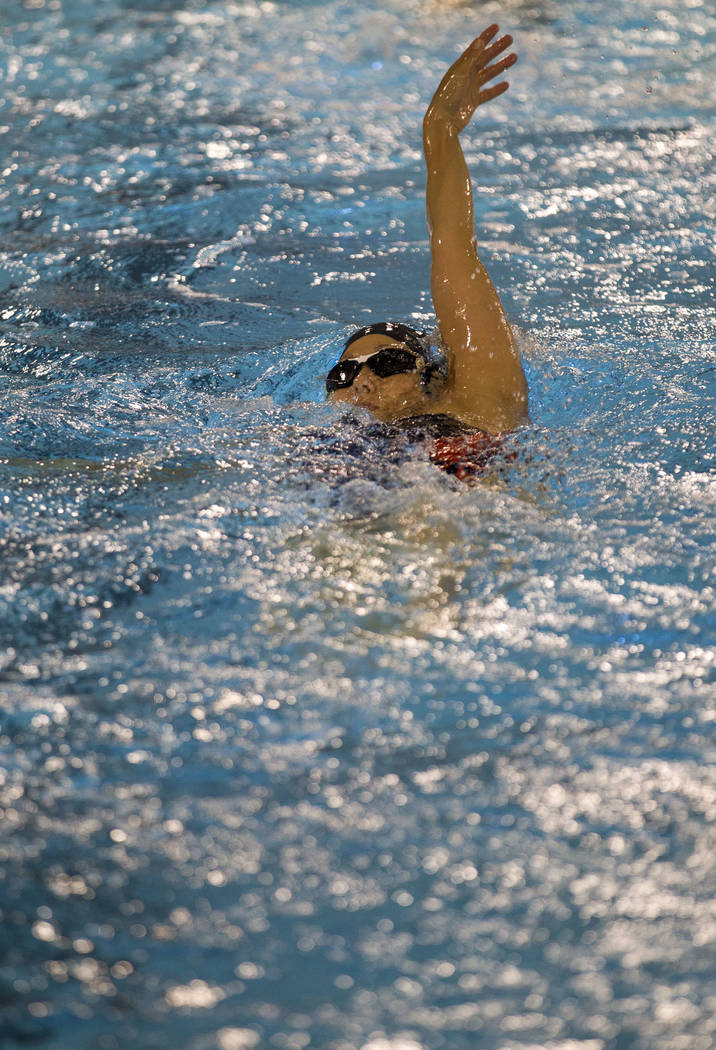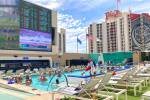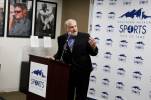Las Vegas Masters swim team embodies sport’s health benefits
It’s shortly after 5 a.m. on a Friday, 20 minutes before the Desert Breeze Aquatic Center opens for the day. Headlights of cars pulling into the parking lot bring into better focus the growing line of men and women waiting outside.
Just a few minutes after the pool’s 5:30 a.m. opening, 40 swimmers begin logging three miles of laps under the watchful coaching eye of 82-year-old Victor Hecker, who coached Olympians in California before a two-year gig as UNLV’s first swim coach in the ‘70s.
A long-time real estate developer in Southern Nevada, he founded this Las Vegas Masters swim team 17 years ago after local swimmers aware of his coaching prowess essentially begged him to come back to the pool. Five days a week he’s there for the early 90-minute practices.
“Go easy, hard, easy,” Hecker says, barely raising his voice to the group. The attentive swimmers nod at the shorthand explanation for how he wants them to practice a series of laps of freestyle and butterfly strokes.
The more you talk with members of Hecker’s team — a mix of former high school and college swimmers along with newcomers to the sport — the more you realize how much they respect how Hecker works them.
Many say that while they enjoy the regional and national competition and socializing that the swim club affords, what they enjoy most are the health benefits of swimming, which recent studies have shown can give someone in his or her 60s the physiological functions of someone 20 years younger.
“Swimming’s saved my life,” says 60-year-old Joe Wyson, the owner of paving company J&J Enterprises and Discount Firearms and Ammo. “I dropped 50 pounds, from around 235 to 185. It’s the most important part of my day. I get so much more done because of the energy it gives me. My attitude’s better. It’s a great cardiovascular workout. I now feel like I could live forever. When I ran, I hurt my ankles or my knees. Swimming doesn’t put any strain on my joints.”
While Wyson didn’t swim competitively until joining Las Vegas Masters about five years ago — Hecker says he was “basically a beginner when he came to me” — one of his teammates, 50-year-old special education teacher Florence Aitken, was once among the best swimmers in the nation.
She earned a swimming scholarship to Southern Methodist University and made it to the Olympic trials three times in the 1980s as a distance freestyle swimmer.
Still, she hadn’t set foot in the water for almost 30 years — until two years ago — as she concentrated on raising her two children and a teaching career.
“I was struggling with vertigo, an imbalance in my inner ear was causing dizziness, and a doctor here in Las Vegas thought swimming might help alleviate my symptoms,” she says.
As it turned out, swimming has. She says the movement of her head back and forth in the water while doing strokes “has really helped me get over it.”
Even more important, she says, is the energy she now has to work with her children at Roger Bryan Elementary School in the Clark County School District.
“Even my aide noticed that I had much more energy since I started swimming again,” she says.
Aitken is well aware of research done at Indiana University Bloomington’s Counsilman Center for the Science of Swimming, which has examined the effects of long-term participation in vigorous activity on “optimal aging.”
“Swimming’s saved my life. … I get so much more done because of the energy it gives me.”
That research, which Professor Joel Stager says has shown a “20-year offset” in the rate of physiological function decline by swimmers in their 60s, used a battery of tests to measure the blood pressure, muscle mass, blood chemistry and pulmonary function age markers of swimmers participating in the 2004 U.S. masters championships with the same age markers collected on the general population. (Masters in this case means swimmers older than age 18.)
Measured age markers typically decline by 0.5 percent to 1 percent per year beginning around age 35, according to earlier research.
Data collected by the team found that regular and intensive swimming substantially delayed the decline of measured age markers. While Stager said there was a decline in the rate of physiological function decline in all lower age ranges, the most significant decline came among those in their mid-60s.
“The rate of change as far as declines in physiological function — due to aging, we think — seems to accelerate in a person’s mid-60s,” Stager says. “If we could postpone this by a decade or two — as we’ve seen happen with older masters swimmers we tested — we’d be talking about tremendous increases in quality of life. … Not necessarily living longer, but living better. You can’t be Father Time, but it appears you can slow your decline.”
Aitken says now that she’s swimming again, she “feels 20 and I act 20.”
Hecker, who learned to coach swimming after answering an ad on his California junior college bulletin board, says he’s not surprised by research showing that regular swimmers seem to age particularly well.
“You get the maximum benefit out of your effort,” he says. “I’ve got people in their 50s who move like teenagers. You can train someone harder in water. … There’s not a lot of stress on your legs and knees. It’s a great cardiovascular exercise. It should surprise no one.”
Contact Paul Harasim at pharasim@reviewjournal.com or 702-387-5273. Follow @paulharasim on Twitter.
About the team
Requirements for Las Vegas Masters team membership:
■ 18 or older
■ A member of the governing body, U.S. Masters Swimming, which costs $54 annually
■ Ability to perform freestyle, backstroke, breaststroke and butterfly
■ Have an assessment by coach Victor Hecker
If interested in joining the program, team manager Karin Wegner suggests visiting practice, which takes place from 5:30 to 7 a.m. Monday through Friday at Desert Breeze Aquatic Center, near Spring Mountain Road and Durango Drive. lvmswim.com
The competitions
The Las Vegas Masters swim team has at least five meets per year, two of which are local, one in January, one in June. The remaining three meets are national or regional championships that can occur anywhere in the U.S.



